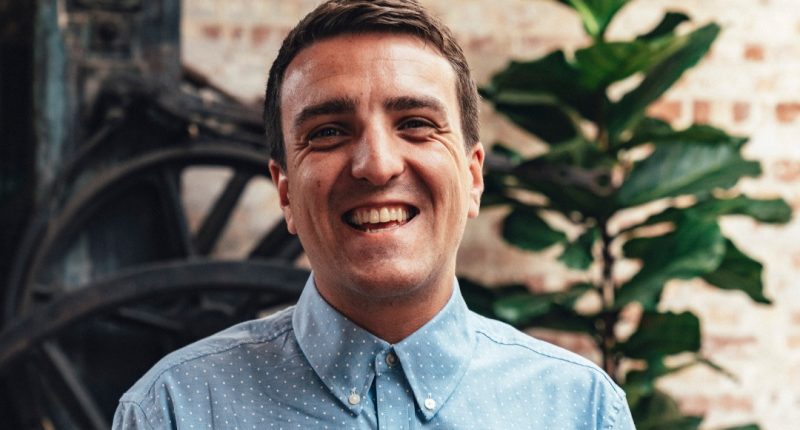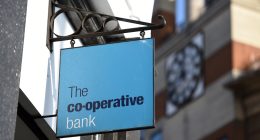A MAN who wracked up a whopping £24,000 in debt has revealed a simple method he used to clear it.
Sammie Ellard-King shifted the pile and got himself out of the red in just 18 months.
Sammie, 34, lives in Hampshire and now runs his own business helping other people with their finances.
He first ran into money troubles when he was just 18 and he got his first overdraft.
Within weeks he had maxed out the £2,000 limit on clothes and nights out with his friends.
Despite getting a good job in marketing and starting his own club promotion business when he graduated from university, his salary wasn’t making a dent due to taking out further loans and spending more.
READ MORE IN MONEY
The pile had skyrocketed to a whopping £24,000 by he time he was 25,
Sammie says he was “never taught the value of a pound” which meant he was ill-prepared for living alone as an adult.
He said: “I was just so out of control with my spending, it was just spiralling and getting worse.”
Most of Sammie’s debt came from credit cards and high-interest payday loans, this meant his credit score quickly plummeted.
Most read in Money
The whole thing proved “embarrassing” for Sammie, especially as many of his friends all seemed to have found their footing and were starting businesses already.
While he was away travelling, a trip he paid for using yet another credit card, he was asked when he wanted to retire and how much cash he would need to do so.
He said: “I realised very quickly I was doing this wrong, I was experiencing lots of things, which was an education in itself, but I needed to turn it around.”
And that’s what he did. Sammie came home and became “obsessed” with clearing his debt.
That was when he began researching and discovered the “highly effective” snowball method for the first time.
This involved putting his debts in order, but instead of going from smallest to largest which is usually how it’s done, Sammie went from biggest to smallest.
He started with one of his credit cards that had £7,000 of debt first, transferring it to an interest-free card.
Doing this means you can pay off more of the debt quicker, as the repayments go on paying back the debt itself rather than interest.
While concentrating on clearing this debt first, he made the minimum possible repayments on the others, even negotiating as little as £1 per month for six months with some lenders.
At the same time, Sammie made some big lifestyle changes, which included completely cutting back on social occasions and spending.
A bit of an entrepreneur already, he launched several side hustles, including trainer and clothes reselling, to try and clear the debt.
He also did freelance consulting and running events, and “anything to help get extra cash”.
Sammie said: “If I’d just had my normal income [of £30,000 plus bonuses] it would have taken as long as three or four years to clear.
“It became an obsession – and I ended up clearing it all in 18 months.”
Since sorting out his financial troubles, Sammie has launched his own financial website, Up the Gains to help others learn about money.
What is the snowball or avalanche method?
The debt snowball or avalanche methods are effective ways to clear debt such as credit cards and loans.
But whichever you choose, make sure to put priority debts and bills first – these are ones that have the most serious consequences if not paid, like councils tax or rent.
First list all your debts and strive to make minimum payments on all of them bar one.
On that final debt, pay more than the minimum requirement each month – dedicating as much as possible, but not too much as you don’t want to build up more debt.
Then once the card or loan is cleared, target the next balance until all the debts are gone.
The difference between the two strategies is that with the snowball method, you target the smallest debt first and the biggest debt last – as the smaller liabilities will be easier to clear offering encouragement along the way.
On the other hand, the avalanche approach goes from the other end of the scale.
Targeting the highest-interest debt first and the lowest-interest debt last, reducing the total cost of your liabilities.
Whichever one you choose you must make sure you’re paying your essential bills first.
The debt snowball method is to motivate the person in debt to continue paying it off.
There is a reward to seeing the first smaller debt go away.
Debt avalanche will save the person in interest payment if they stay motivated.
The small debt, with a lower interest rate, will stay around longer.
The debt snowball method has larger high-interest debts around longer, thus may take more time to pay off.
How to cut the cost of your debt
IF you’re in large amounts of debt it can be really worrying. Here are some tips from Citizens Advice on how you can take action.
Check your bank balance on a regular basis – knowing your spending patterns is the first step to managing your money
Work out your budget – by writing down your income and taking away your essential bills such as food and transport
If you have money left over, plan in advance what else you’ll spend or save. If you don’t, look at ways to cut your costs
Pay off more than the minimum – If you’ve got credit card debts aim to pay off more than the minimum amount on your credit card each month to bring down your bill quicker
Pay your most expensive credit card sooner – If you have more than one credit card and can’t pay them off in full each month, prioritise the most expensive card (the one with the highest interest rate)
Prioritise your debts – If you’ve got several debts and you can’t afford to pay them all it’s important to prioritise them
Your rent, mortgage, council tax and energy bills should be paid first because the consequences can be more serious if you don’t pay
Get advice – If you’re struggling to pay your debts month after month it’s important you get advice as soon as possible, before they build up even further
Groups like Citizens Advice and National Debtline can help you prioritise and negotiate with your creditors to offer you more affordable repayment plans
Sammie has shared his top tips for taking control of your finances and clearing debt this New Year.
Earn cashback
A cashback app is essentially your shopping companion, Sammie says.
He explained: “It’s always ready to put money back into your pocket, so now’s the time to earn yourself some easy cashback which can go towards next year’s costly purchases.”
Cashback websites and apps such as TopCashBack and Quidco work with a range of retailers to offer free money back when you shop.
Once the money in your account adds up, this “cashback” can then be withdrawn as actual cash or in the form of a voucher.
If you do a lot of online shopping this could be a great way to get some funds with ease.
But don’t be tempted to shop for things you don’t need, just get it on your normal shopping to avoid getting in to more debt – you can even get cashback on paying bills.
Here are four savvy ways to get more cash back when you shop.
Switch bank accounts for up to £200 in cashback
Sammie said: “The recent changes to CASS (current account switching service) have resulted in a land grab from most of the major banks.”
He explained that you can get up to £200 for switching accounts, depending on the provider, and the switch takes around seven working days to come through.
“All your direct debits, including your salary, are taken care of for you and any money paid into old accounts is automatically forwarded on for 3 years,” Sammie added.
Each provider has different T&C’s so it’s important to check these out.
The current best switch offer is at First Direct for £175.
Ask for a pay rise
According to Sammie, 53% of full-time employed individuals have never asked for a pay rise despite there being a 66% chance of success.
He said: “You can push up your wages if you prepare yourself for a meeting with reasons why you deserve a raise.
“Check job boards for what other companies are paying for your role and make a list of examples to show how you’ve been performing well.”
Start a side hustle
For Sammie, having side hustles made a massive difference in his journey to financial freedom.
There are many different types of side hustles you can tailor to suit your lifestyle needs.
He said: “You could start earning straight away via referral links, online surveys, website testing, focus groups and mystery shopping.
“Or you could turn your hand to some higher-effort side hustles that could generate substantial income but often require longer to get going – these include blogging, podcasting, tutoring and picking up freelance work through sites like Fiverr.”
Of course, bear in mind that if you earn £1,000 or more you’ll be required to fill out a self-assessment tax return.
Meanwhile, millions of Brits will want to be in the know ahead of 17 money changes set to hit in 2024.
Plus, it’s been a tough year for the high street but there’s fresh hope in 2024 as several chains are set to open new sites.
Set up a savings pot that earns you interest
If you have the extra income to put away, you might as well put it in the right place – but only once you’ve paid off your debts.
That’s because you’ll usually be paying more interest on the money you’ve borrowed than what you can earn on savings.
Sammie said: “Online banking apps such as Monzo and Chase allow you to set up a savings pot in seconds and earn interest on your money.
Read more on The Sun
“What’s more, you can turn on the roundup feature to save up all your spare change.”
He also recommends creating an “emergency fund” for rainy days and setting yourself a target to earn some interest on your savings.
How to get debt help for free
THERE are lots of groups who can help you with your problem debts.
- Citizens Advice – 0808 800 9060
- StepChange – 0800 138 1111
- National Debtline – 0808 808 4000
- Debt Advice Foundation – 0800 043 4050
You can also find information about Debt Management Plans (DMP) and Individual Voluntary Arrangements (IVA) on the MoneyHelper and on the Government’s Gov.uk site.
Speak to one of these organisations – don’t be tempted to use a claims management firm that will claim it can write-off lots of your debts in return for a large up-front fee.
You can also join our new Sun Money Facebook group to share stories and tips and engage with the consumer team and other group members.









